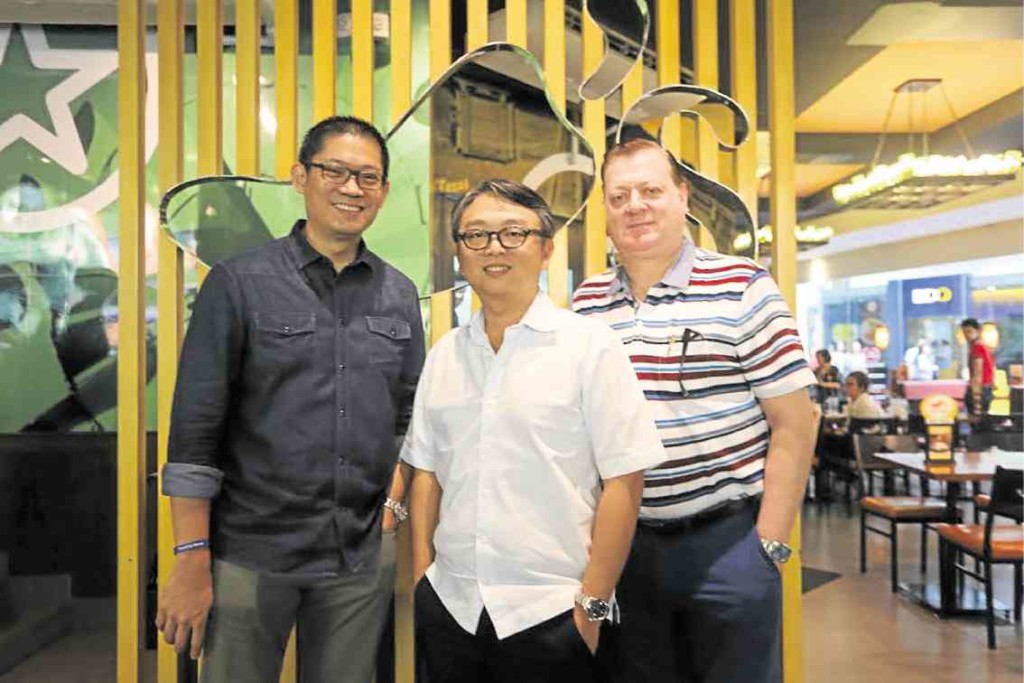Sitting down to chat with Luigi Vera, Richie Yang and Robert Epes, the trio who brought to the Philippines the now well-loved American diner Chili’s, one almost feels like she is in the middle of a college reunion.
The business partners, after all, forged their friendship while attending university in the United States around 30 years ago.
“We have so many stories,” says Vera. “[During one] spring break, we all agreed with our other friends that we would not go anywhere else but Lake Tahoe. Rob, being stingy as usual, rented a cheap van, and in the middle of the highway it was suddenly spewing smoke! We had to stop because the engine overheated.”
Vera, managing director of Am-Phil Group, Chili’s parent company, does most of the storytelling; Yang and Epes chime in once in a while.
“Rob usually laughs at my jokes, while Richie sort of polices me,” adds Vera with a chuckle.
Vera and Yang already knew each other even before going to Sta. Clara University in California where they met the upperclassman Epes, as they were former schoolmates in Xavier School. In university, the three would often hang out after classes or go to the gym together, where, Vera says, Epes spent as much time chatting with so many people as he did working out.
Tried and tested by their many entrepreneurial ventures in the past 20 years, the strong, solid camaraderie of these three is proof that friendship and business can mix well—and it all started with Chili’s, their first restaurant, which opened in the Philippines in 1996 in Greenbelt. The trio chose Chili’s because it was a place they visited frequently back in college.
“We would always order their steak fajitas, burgers, baby back ribs, wings over buffalo, and country fried steak,” says Vera. “And that was where I first tried bottomless soda.”
Even when Vera and Yang came home to work with their respective family businesses in the early 1990s, the two never lost touch with Epes, who was then working for a bank in Guam. “When I resigned from the bank, I asked these guys, hey do you want to do something serious? And the idea of food came up because there was nothing in the market at the time [under the ‘casual plus’ dining category].”
After getting in touch with Chili’s in Cupertino—the one they frequently visited as college buddies—the trio were contacted by Chili’s Singapore, which used to handle franchises in Asia. Epes says that one of the initial pains of putting up the restaurant was finding the perfect spot which the Singapore office also approved of. It took them a year and five months before finally securing the spot in Greenbelt 1. Chili’s now has 10 branches in Metro Manila.
“Yeah, that was hard, at first,” says Vera.
“But when we opened, Chili’s was a hit. American concepts were very welcome then,” adds Yang, before he and Vera briefly glance at the basketball game airing on one of the TV screens inside Chili’s Mall of Asia branch.
“Yeah, this is how we hold meetings,” says Vera, chuckling again. “We jump from topic to topic, or sometimes, in the middle of a conversation we suddenly watch a basketball game, or we start teasing Rob, or somebody starts texting. We tried writing down the minutes, but nobody would read them!”
One of their best assets as a team, however, is their ability to make decisions quickly, Vera adds.
“There might be arguments, but we don’t really get too serious about them. For example, if the two of them start arguing, I change the conversation. When Rob and I start arguing, Richie says something to defuse the situation,” he says.
“I think it’s also because our roles are pretty defined,” says Yang, who is responsible mostly for the restaurant’s development. Epes does most of the restaurant rounds and works with their people side, while Vera, as managing director, ensures that restaurant rules and regulations are implemented and adhered to daily.
“Rob is our PRO—or GRO,” says Vera in jest.
Epes laughs and responds, “Depending what time of night.”
But what Vera believes has contributed most to the strength of their partnership is the fact that no one plays the blame game, even when they are faced with challenges.
“A big part of it is acceptance of each other’s flaws and strengths. We are not perfect; we don’t know everything, so we don’t blame each other. We never take anything personally. Everything becomes lessons learned for us,” Vera says.


